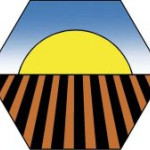- Industri: Earth science
- Number of terms: 26251
- Number of blossaries: 0
- Company Profile:
An international scientific society that fosters the transfer of knowledge and practices to sustain global soils. Based in Madison, WI, and founded in 1936, SSSA is the professional home for 6,000+ members dedicated to advancing the field of soil science. It provides information about soils in ...
Close-growing crop, that provides soil protection, seeding protection, and soil improvement between periods of normal crop production, or between trees in orchards and vines in vineyards. When plowed under and incorporated into the soil, cover crops may be referred to as green manure crops.
Industry:Earth science
Organized microbial systems consisting of layers of microbial cells attached to surfaces, with complex structural (i.e., extracellular polysacchrides) and functional (i.e., anaerobic degradion) characteristics. Can form on roots, organic residues, and water pipes for example.
Industry:Earth science
Bacterial gene expression regulated by small molecular weight compounds (i.e., N-acy-homoserine lactones) that are synthesized only when the appropriate density ('quorum') of bacterial producers is present.
Industry:Earth science
Mass transfer of nitrogen as ammonia gas from soil, plant, or liquid systems to the atmosphere.
Industry:Earth science
Enzymes that are excreted by organisms into the surrounding environment and carry out their metabolic or catabolic activity in that location.
Industry:Earth science
In commercial fertilizer manufacturing, it is used to designate orthophosphoric acid, H3PO4. In fertilizer labeling, it is the common term used to represent the phosphate concentration in terms of available P, expressed as percent P2O5.
Industry:Earth science
Rounded and subrounded aggregates of fecal material produced by the soil fauna.
Industry:Earth science
Any physical, recognizable form or feature on the earth's surface, having a characteristic shape, and produced by natural causes; it includes a wide range in size such as a shrub-coppice dune than can be several meters across vs. a seif dune which can be up to 100 km long. Landforms provide an empirical description of similar portions of the earth's surface.
Industry:Earth science
